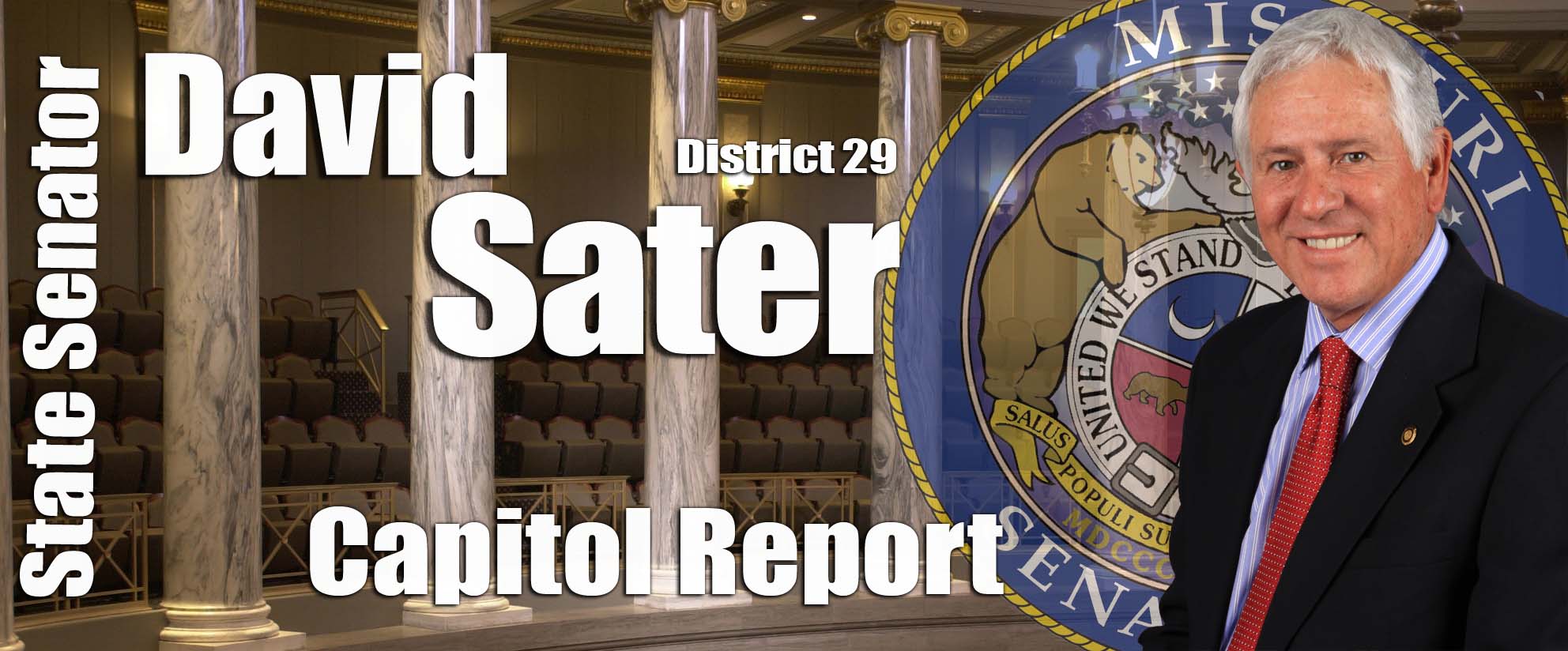JEFFERSON CITY — On Friday, May 12, the Missouri Legislature wrapped up the 2017 legislative session. Unlike our federal Congress, which meets most of the year with a break in August and at the major holidays, the Missouri Constitution specifies a five-month legislative session from early January through mid-May every year. This reflects the nature of the Missouri Legislature as citizen legislators who leave their homes, families, and often jobs for five months every year to serve in the Senate or the House. The other seven months a year gives them an opportunity to work, make a living, meet with constituents in their districts and spend time with their families. Those who know me know there is no place I’d rather be than southwest Missouri, so I always look upon the end of the legislative session eagerly, and hopefully, with a sense of accomplishment that I did the job I was elected to do.
Looks are often deceiving and this year’s session is a case in point. The Missouri Senate and House passed fewer bills and were often sitting through drawn-out debate and filibusters on the Senate floor. This does not mean we didn’t work as hard or the session wasn’t productive. If anything, this was the most work and the longest hours lawmakers have put in since I was first elected to the House in 2004 and resulted in some of the most significant changes to state law and the most conservative agenda in a generation.
Most importantly, we passed a balanced budget on time without tax increases. At a time when the federal debt is hovering around $20 trillion, the state of Missouri has a balanced budget, among the lowest taxes in the country and maintains a stellar AAA bond rating. When I was a small business owner in Cassville, I had to balance the check book, pay my employees and find a way to reinvest in my business to ensure I could continue to serve my customers year after year. This is the same philosophy I have brought to Jefferson City. As a member of the Senate Appropriations Committee, my focus has been, and will always be, to make sure we are spending the taxpayers’ money efficiently while leaving as much in their back pocket as possible. That’s what we believe in Missouri; working hard, paying your bills and keeping the government out of your wallet.
In that balanced budget, we fully funded the school foundation formula. The goal of the formula is to make sure every school district in Missouri, regardless of its location, has the financial means to provide a quality education to our students. In years past, challenging budgets made it difficult to fully fund the formula, especially with ever-growing Medicaid costs. This year, though, Missouri school districts will receive nearly $3.4 billion in basic aid for K-12 public education. On top of that, we budgeted $2 million for virtual education, a $12 million increase for early childhood special education and additional funding to help cover school transportation costs.
Education is one of the pillars of a strong state economy. Another is economic development and job growth and that was also a focus of the Legislature this year. We made Missouri the 28th Right to Work state. Regardless of the controversy around Right to Work, there is no doubt that our state is now more welcoming to prospective employers and will reap the benefits of more jobs and better-paying jobs. We also pushed regulatory reform by opening Missouri up to ridesharing services like Uber and Lyft. Prior to our efforts, these innovative services and job creators shied away from Missouri because of overregulation and government interference. Missouri is already seeing the benefits the legislation the Senate and House passed. Uber started operating in Branson just last week and I’ve been in contact with Lyft representatives that are interested in expanding into Branson as well. Both of these companies are adding new Missouri cities and Missouri jobs all the time.
We also solved a big, looming problem with Missourians being able to use their state IDs to board a plane. Back in 2005, Congress passed the REAL ID Act, setting minimum standards for driver’s licenses and state IDs. Being the Show-Me State and being rightfully concerned about privacy and the prying eyes of the federal government, Missouri rejected REAL ID. I voted for that bill back in 2009. Fast-forward to now and the federal government is threatening to not allow Missourians to use their state driver’s licenses to get on planes beginning in January 2018, if the state didn’t pass legislation bringing us into compliance with REAL ID. To deal with this problem, we passed a very measured and compromised solution that gives Missourians the option of obtaining a REAL ID-compliant state ID or to keep their current non-compliant state ID. This is a solution to privacy concerns while at the same time making sure those who want to get on a plane next year can.
This session had its challenges, but we ended up with a number of conservative victories and I am proud to have represented the people of the 29th District in these efforts.
As always, I welcome your ideas, questions and concerns about Missouri government. You may contact me at the State Capitol as follows: (573) 751-1480, david.sater@senate.mo.govor by writing to Sen. David Sater, Missouri State Capitol, Room 416, Jefferson City, MO 65101.

